|
12/30/2016 No One Told Me by Chrissie Morris BradyNo One Told Me I lay mute, akinetic Even after I awakened No one told me it could change Seemed like no one thought it would Wanting to please the cleaner Who greeted me, smiling, each day After months I managed 'hello' Followed only by mumbles Anger is a driver It need not destroy us It channeled my energy and mind Still, I knew not what I could do If I could not walk Then I would crawl But only mumbling for words? No, I would speak clear tones To walk took eighteen months To speak clear was years of anger No one thinks I should be able Nor told me that I could Why Maybe because my mother hated me. Or maybe the teasing and bullying, Probably I learned to hate myself. Choices I've been the mother my mother never was. Loving and sacrificing, always there. Carpools, parties, school gates Bio: Chrissie Morris Brady lives next to the sea on the south coast of England. She lived in southern California for several years, where she gained her degree in Psychology and worked with recovering addicts. Chrissie has been published by Dead Snakes, Scarlet Review, Dissident Voice, Mad Swirl, Writing For Peace and other poetry publications. She also blogs about her declining health. Chrissie lives with her teenage daughter. 12/29/2016 Two Poems by Gary BeckHomeless III It rained for three days. No one ate lunch in Bryant Park, so they didn’t throw away leftovers in the trash cans. I couldn’t find a dry spot to sleep at night and my cardboard bed got soaked, so I threw it away. Maybe if I’m lucky I’ll find a dry doorway where no one will bother me, but I’ve never been lucky. If it rains for forty days and forty nights I’ll probably drown, but so will everyone else. Holiday III The explosions get louder. My nerves are tingling. Has war been declared? I risk going closer and hear 1930’s music, see people dancing happily and I suddenly remember it’s the 4th of July. Democracy may be fraying, but we briefly escape rampant inequality in a brilliant display of colorful fireworks. Bio: Gary Beck has spent most of his adult life as a theater director, and as an art dealer when he couldn’t make a living in theater. He has 11 published chapbooks and 3 more accepted for publication. His poetry collections include: Days of Destruction (Skive Press), Expectations (Rogue Scholars Press). Dawn in Cities, Assault on Nature, Songs of a Clerk, Civilized Ways, Displays, Perceptions & Fault Lines (Winter Goose Publishing). Tremors, Perturbations, Rude Awakenings and The Remission of Order will be published by Winter Goose Publishing. Conditioned Response (Nazar Look). Resonance (Dreaming Big Publications). His novels include: Extreme Change (Cogwheel Press), Flawed Connections (Black Rose Writing) and Call to Valor (Gnome on Pigs Productions). Sudden Conflicts will be published by Lillicat Publishers and State of Rage by Rainy Day Reads Publishing. His short story collection, A Glimpse of Youth (Sweatshoppe Publications). Now I Accuse and other stories will be published by Winter Goose Publishing. His original plays and translations of Moliere, Aristophanes and Sophocles have been produced Off Broadway. His poetry, fiction and essays have appeared in hundreds of literary magazines. He currently lives in New York City. 12/27/2016 Jack has a problem by Samantha Zaphirisjack has a problem dear jack, she loved you. and you loved heroin. she chose you, and you chose heroin. dear jack, i know it is not your fault. remember when you were afraid of flu shots? you would hold onto your mother's arm now she’s clenching on to yours wondering if you could possibly cough up blood or show signs of life dear jack, we sat on the dock at three am and talked about us. the words became slurred between bags of cocaine and i couldn’t do it. the floors sank from underneath me and i was gone. a mixture of broken twilights in the form of a girl and the crackling sounds of an am radio. dear jack, my downward spiral helped our love indefinitely. the drugs allowed my vulnerability and the reason for you to keep using. i hate the metaphor between love and drugs. because love is not a drug: cocaine is a drug, heroin is a drug. hell, even marijuana and aspirin are drugs. but love is not a drug. i didn’t get addicted to the idea of you i got addicted to the idea of you off of drugs. i could never kiss you without tasting my own whiskey breath and your daily pack of marlboros. dear jack, they told me i would die. six months later i am in the airport waiting for the rehabilitation decorum to start once again. twelve months later i find out you had a funeral without me. i found out there was no grave, but the remnants of the ashes your parents threw out. “it’s better to not have a son than a drug addict son.” two months later i called your phone every night hoping you’d pick up. i went through our text messages and i found your dealer's phone number he was arrested three weeks later. i called in. i blamed everyone possible, his parents, his grandparents, his fucking dog, his friends, the money his parents left in a glorified trust fund. but mostly, i blamed myself. i blamed the scars on my thighs that slipped out of their hiding place during sex. i blame the nights he caught me throwing up dinner into the kitchen sink or the first time he saw the girl he supposedly love lose herself to cocaine. i blamed the terminal at the airport for separating him and i, the drugs and i, him and the drugs. dear jack, who else is there to blame? it was you all along. i might still love you, and i might have loved you with such an intensity then that i choked on my words, but you had no right to pass your pain to me. 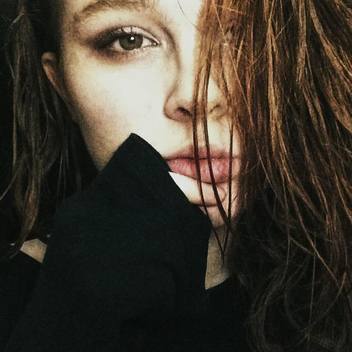 Bio: Samantha Zaphiris is an author originating from Pennsylvania, but finds herself living most often in her head, which furthermore is above the clouds. She’d like to consider herself an author, and writes poetic verse in her free time. Apart from writing, she is an advocate for ending the stigma surrounding mental health, an avid music lover and or musician, a sucker for old movies, and the girl who wants to be friends with just about everyone. Her struggles with anorexia nervosa have shaped her writing into what it is today, and is still molding who she is as a person. You can most often find her at quaint diners, local music shops, or on www.samanthazaphiris.tumblr.com 12/23/2016 Three Poems by Howie GoodGun Nation So I found myself in tears. It’s an intricate dance. On my way to Newtown, I had to pull my car over and take half a Xanax. This is constantly happening. Run Hide Fight. I can’t believe I’m still alive. I always note where the nearest exit is in movie theaters. He may be here. Or he may be over there. Seed text: https://www.theguardian.com/film/2016/nov/28/gun-violence-documentaries-91-percent-newtown-under-the-gun Shelter in Place While going to get the mail, I just happen to look up, and with all the leaves down, notice for the first time in the diffuse light of a gray day a dark, dripping mass wedged between the trunk and lifeless branches, an abandoned nest that’s about the size of a human heart, another revealing detail for the cartographer of hell to add to the map. This Sickness Unto Death Almost every day and night I have it. I wake up with it and sleep with it. I sometimes go crazy with the pain. Then someone suggested, “Eat, like, an apple.” Medicine is cheaper than fruits here. What gives? Dark snow spiraling down and the eyes facing the sky. Seed text: Comments on the web page Home Remedies for Headache (www.top10homeremedies.com/home-remedies/home-remedies-for-headache.html) Bio: Howie Good's latest books are A Ghost Sings, a Door Opens from Another New Calligraphy and Robots vs. Kung Fu from AngelHouse Press.
Photo by Maren Celest
From the opening track Summer of Feathers off of Jessie Winslow's Bare EP, we hear this whispery question tug at our sleeves, "Can you feel the fire in our hearts?" As fingers snap like a bodily percussion throughout the earthy and soft introduction of an over-too-soon solid artistic canvas, Winslow opens a small window onto a musical landscape we can only hope will continue to unfold its magic further on down the road, with the next batch of whispery sounds sure to leave us as enchanted & curious as do the songs of Bare. AHC: What has this musical journey, so far, been like for you, the highs and the lows, and what life lessons do you feel you've picked up along the way? Jessie: Well, I'm pretty new to music. I just started singing and playing instruments in the last four years. I wrote and recorded my EP just over a year ago, so my musical journey has only just begun. Though, I did spent years pursuing visual art prior to making music so I'm very aware of the ebbs and flows of a creative pursuit. There are definitely ups and downs. Frustrations and celebrations. It’s a labor of love. Most of all from this past year, I have learned to be patient with myself, and with the process of creating something with only a few skills. The highest for me was definitely the recording of Bare EP. We recorded it in Gia’s apartment over the course of three months. Gia and the other musicians on the EP were seriously rock stars. I gave them only a few guidelines with little instruction, because I wanted to see what they could come up with on their own. It was a very subtle collaboration. I'm very proud of how the EP turned out. The succeeding article in Newcity was definitely a high as well. I was completely flattered and excited to have the editor contact me within a week or so of the digital release to ask to write a review. It’s a good one, too! Lows, well, I suppose just the personal battle of playing so many shows, many with low attendance or that you're not getting paid for, where you kind of start questioning why you're doing what you're doing. But no, I'm doing it because I fucking love making music. I fucking love it. So, yep, this is what I do. I talk myself out of that self-doubt. AHC: What first drew you to music and what was your early musical environment like growing up? Were there pivotal songs for you then that just floored you the moment you heard them? Jessie: My dad worked in commercial radio for his entire career, so we were constantly listening to the radio at our house. Although he spent most of his years on the business side, he really, truly loves music. That music appreciation rubbed off on me from a really young age. Oddly enough, we weren't really encouraged to make music. I think my dad assumed that since he was not good at singing or playing instruments that we wouldn't be either. So, when I started singing a few years ago and could carry a tune, I think it surprised everyone in my family. My dad even got inspired and bought a guitar and took piano lessons and even started writing his own songs! One song that was pretty life changing, surprisingly enough was Free Bird by Lynyrd Skynyrd. I'd never heard anything like it. My dad's radio station at the time played only 50's/60's oldies, otherwise we were listening to Disney music or pop. That’s what we had been exposed to at the time. He'd recently gotten a new job at a Classic Rock station, so he sat my sister Rachel and I down one day and made us listen to the song all the way through. I'll never forget the way it made me feel. Like I was being lifted out of my chair and soaring through the clouds. It was a powerful moment. I was eight, I think. AHC: Do you remember the first song that you ever wrote? Jessie: Sure do. It's a song called, “Oh My Baby” that I wrote on a ukulele for an ex-boyfriend that will never see the light of day. AHC: Who are some of your major musical inspirations? Which musicians have you learned the most from? Jessie: God, there are so many. I'm really inspired by Tune-Yards. I think Merrill Garbus is a genius. I also love Thao and the Get Down Stay Down and Mirah. Amelia from Sylvan Esso/ Mountain Man. I love her vocals. Angel Olsen. Feist. I could go on and on. I'm only naming female contemporaries right now. I've learned the most from my collaborators. Gia, of course. She's a one-woman magical sound factory. She recorded & produced my EP from her apartment, using a very minimal set up. She's really mastered making things sound warm and dreamy. I learned a lot from her during our recording process. Most of my ex’s who I’ve collaborated with. That’s an interesting concept, because you’re dating the person, so you have this love/soul connection, and then you start making music together. It’s sort of an unspoken lesson. Like, you’re learning just by making things together. Sean was very gentle and encouraging, and that’s really how I got started playing. Matt, was just…completely uninhibited, so I learned how to follow through with all of my crazy ideas. Ryan, had an incredibly well-educated background in music, so I got a bit more of the intellectual play with my ideas. But you know, I’m not naming names. AHC: What do you think makes for a good song, as you're writing and composing, is there a sudden moment when you know you've found the right mix, that perfect angle of light, so to speak? Jessie: I think I'm still growing here. I wrote a lot of songs very quickly this year, and didn't spend much time editing. I’d write them and then perform them within a week or so. I'm working now more on the editing process for songwriting. Spending more time with each song. And yes, there's a sweet spot for sure. For me, a good song is a combination of brain and heart. The idea is that the musician has made thoughtful arrangements, or at the least, smart and interesting choices, but also gets you to feel the feels, and isn’t just going through the motions. I strive to do that in my own work. AHC: How has your music evolved since you first began playing? Jessie: Well, I'm working with more transitions on the composition side. In writing, I'm working with both traditional songs structures and creating more loose train-of-thought (stream of consciousness) type songs. I started with ukulele and loop pedal, and now I’m onto mostly electric guitar. I also was more experimental when I first started, which I’m trying to bring back into my songwriting. I’d get so bored of myself if I only wrote traditional song structures. I like to challenge the rules a bit. Also – my own confidence in playing. I was a timid performer with a lot of stage fright when I first started. Now, I’m happy to stand in front of people and bare my soul. It feels really good to me. AhC: Do you consider music to be a type of healing art, the perfect vehicle through which to translate a feeling, a state of rupture, hope lost and regained? Does the writing and creating of the song save you in the kinds of ways that it saves us, the listener? Jessie: Absolutely. If I hadn't started making music, I might still be lying in my bed crying over a broken heart. My EP was a way for me to process the loss of someone who was very important to me. Writing and making songs is in very many ways a therapy for me. A way to process emotions, move forward, and share my experiences. It is indeed a vehicle of light and healing for me, especially when through it I express darkness or sadness. AHC: What are your fondest musical memories? In your house? In your neighborhood or town? On-tour, on-the-road? Jessie: Well, I have to shout out to the Chicago music community here. Some of my fondest memories are playing small house shows, or alternative gig spaces in the city. Once it caught wind that I was eager to share my music, the community of musicians that I’ve met in Chicago really supported me. I played so many shows in Chicago in 2016, and was mostly invited by word-of-mouth. The community that I’ve become apart of here is encouraging, supportive, and warm and I wouldn’t have it any other way. I also love going to out to see shows in Chicago. There are so many super talented people hiding under rocks, or playing shows in weird dive bars. It’s cool to be apart of this scene and get to know this diversity of talent. I hosted a few shows in my apartment, some independent and some working with SoFar Sounds. Those are good memories, too. I love a room full of people who are there to listen to good music and maybe make some new friends. There is nothing better than that sense of community and support, especially when you're just starting out. AHC: What would be your dream gig, if you were asked to go on tour and open up for one of your musical heroes or heroines? Jessie: Oh, snap! I’d love to open up for Feist. AHC: Do you have any words of advice for other musicians and singer-songwriters out there who are just starting out and trying to find their voice and their way in this world? Jessie: Be brave. Do as much as you can yourself, and don't let anything block you. Every obstacle is a lesson or an opportunity for growth. Make your work as genuine as possible. AHC: Do you have any new projects in the works you'd like to tell people about? Jessie: I’ve been toying with the idea of producing my own full-length. I'm definitely in a writing and development stage right now, so no big news just yet. Just closing the doors for a while to listen to my own train of thought. Check back in a few months. For more visit jessiewinslow.com/ jessiewinslow.bandcamp.com/ 12/22/2016 Two Poems by David Subacchi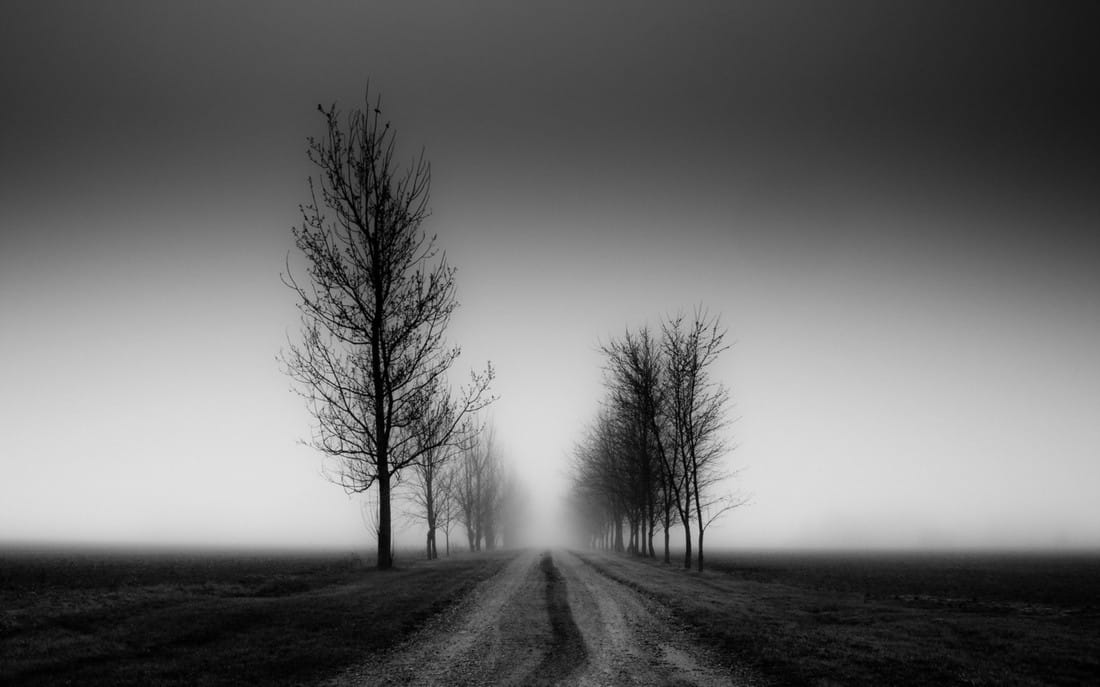 ALARMS In a few hours we will be able To receive the results of exit polls From key states which the BBC advise Will give us a pretty good idea Of what the outcome of it all will be. Then acceptance and concession speeches At least that's what has happened in the past We British modestly thank everyone Including the returning officer But for some reason this seems unlikely. Across the pond the two giants contend To place their hands on the levers of power We drink coffee all day and surf the web Make grand statements or gloomy predictions Argue about when to set our alarms. OUR COAST Why should we care who wins in the United States As November's chill tempts us into seafront bars To taste the warmth of wine and smile at passing cars, To watch the surly waves and hear the chink of plates; Why should we worry which candidate agitates More than the other, or which one outshines the stars? This is our own coast and we have our own concerns, Welsh, British or European we cannot decide, Yet again to America our attention turns As autumn’s weak light fades close to the water's side; So it's one more bottle when the waiter returns All eyes looking west fixed on an uncertain tide. 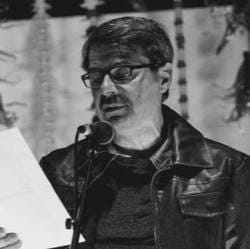 Bio: David Subacchi lives in Wales where he was born of Italian roots. He studied at the University of Liverpool and he has 4 published collections of his English Language poetry First Cut (2012), Hiding in Shadows (2014), Not Really a Stranger (2016) and A Terrible Beauty (2016). His work has also appeared in numerous literary magazines and anthologies. You can find out more about David and his work at http://www.writeoutloud.net/profiles/davidsubacchi
Photography by Jonathan Ryder
From County Donegal, Ireland, comes the poetic and nuanced sounds of Kate O'Callaghan, crafting highly intelligent, self aware, emotionally evocative tales that explore senses of place and purpose, the profound in the everyday and the every day in the profound. Here are songs that expound on experience, create commonality, telling those big and small stories, simultaneously historical and personal, that are the gift of a music which carries the load of paying attention by sharing the world with us in new and unexpected ways. AHC: What has this journey in music, so far, been like for you, the highs and the lows, and what sort of life lessons do you feel you've picked up along the way? Kate: My journey in music did not begin until the 4th decade of my life. I'm not really sure why it took so long for me to discover this path but I guess circumstance and timing have a lot to do with it. I met my husband Seamus at university, he was studying music and I was a science student. We fell deeply in love and had two baby boys while I completed my doctorate in Biology. Once I had all my research finished, we made the decision to move to Donegal, where Seamus grew up. We built our home on a rural peninsula in the northwest of Ireland called Inishowen. A wet and wild rugged landscape surrounded by 270 degrees of Atlantic sea. This was a huge life change for me, being born and bred in Dublin City. I don't know if it was the terrifying beauty of the landscape or the geographical isolation and a sense of loneliness so tangible you could almost touch it that inspired me to start writing - but I yearned to explore a more creative path in life. I began to sing, first with a local choir and then with a band, playing covers in bars. However, what I really wanted was to write my own songs and this was the motivation behind learning to play an instrument. In 2009 Seamus bought me my first guitar and this was when I began writing. Performing live has always been my biggest challenge. Dealing with nerves and that familiar imposter syndrome so common among artists and creators. The nerves don't go away but I have learnt, over time, to trust in what I do. I know I'll never be the greatest singer or most technical guitarist in the world but I know that my songs resonate and connect with people and, for me, that gives meaning and purpose to my art. AHC: What first drew you to music and what was your early musical environment like growing up? Were there pivotal songs for you then that just floored you the moment you heard them? Kate: When I was 10 years old my mother acquired an old piano and I started piano lessons. Unfortunately the piano was accidentally dropped during a house move, and as we couldn't afford to replace it the lessons came to an end within a year. Although I never progressed with learning an instrument again until much later in life I guess it must have laid down a foundation, that harboured within all these years. During that one year of having a piano in the house I remember that I much preferred spending my time just playing freely on it rather than practising the lessons, which I found a bit of a chore. One of the first albums I remember owning was Sinead O'Connor's The Lion and The Cobra - she was most certainly a defining female singer for me. 'Drink before the War' strangely resonated in my 11 year old body. Another huge influence was Kate Bush. The Whole Story on cassette being my prized possession in my mid teens. AHC: Do you remember the first song that you ever wrote? Or that first moment when you picked up a pen and realized that you could create whole worlds just by putting it to paper? Kate: 'She Cries' - on my first EP 'To You' - is the first song I wrote. It's a song about death, attachment and letting go. I don't think I consciously sat down to write on this topic, it just came out. I guess the brain has ways of fragmenting deep-rooted thought and, in a cathartic way, writing helps to delve into that and can clear the subconscious from disruptive memories. AHC: Which musicians have you learned the most from? Or writers, artists, filmmakers etc? Kate: I've probably learned most from other people I've worked with directly. Collaborating with other musicians, whether in writing or performance, gives great insight into the variety of ways we can work and be creative. There are no rules and we all have different modes that work for us but it can be easy to get stuck in a rut sometimes and become blinkered about your own approach. Writer and actor John Cleese (Monty Python) gives a wonderful talk on creativity and how to cultivate it.... I learnt a lot from that. AHC: What do you think makes for a good song, as you're writing and composing, is there a sudden moment when you know you've found the right mix, that perfect angle of light, so to speak? Kate: That's a hard one to pin point. I suppose that's why we end up with as many not so good songs as good ones. There are no rules but for me it's about the story. If I can find an idea musically - a chord progression and melody that encapsulates the emotion and sentiment of the story then I'm happy. Easier said than done however. Sometimes the emotion of a story is not that obvious. It develops as it's written and what may initially start out as one feeling can turn into something completely different. But this is what I love most about the process - you never know where it will take you. AHC: Do you consider music to be a type of healing art, the perfect vehicle through which to translate a feeling, a state of rupture, hope lost and regained? Does the writing and creating of the song save you in the kinds of ways that it saves us, the listener? Kate: Yes, absolutely. Music is a symbiotic relationship between the creator and the listener. It's a form of communication and a vehicle for connection. Through songwriting and singing I have found I can interact with people on an emotional level not often reached otherwise. The music and the stories touch people and strike a chord and it often feels like the listeners reaction completes the song via an unspoken dialogue. The expression of thoughts and feelings through writing and composing ultimately evoke similar emotions in others although the memories attached to such emotions differ from person to person. It's a vehicle through which we can share and experience empathy and acknowledgment of such basic human feelings. AHC: What are your fondest musical memories? In your house? In your neighborhood or town? On-tour, on-the-road? Kate: There are many. I recently toured Germany for the first time with my husband, Seamus. We met lovely people and made some really beautiful friendships - through music and those shared emotions. One particular friend we made along the way organised a little gathering in a tiny art gallery in Bochum on a sunny Sunday morning - there were only 8 people there. We played music, swapped songs, drank coffee and it was magic. With no expectation of what should happen, there was a wonderful relaxed energy. Hearts were open wide, music connected everyone and the love and gratitude in the room was palpable. It was a very special moment. AHC: When you set out to write an album of songs, how much does 'where the world is' in its current moment, culturally, politically, otherwise, influence the kinds of stories you set out to tell? Kate: I tend to write extrospectively a lot. It's the observer in me I guess. However, whether I'm writing about the past or the future it's all conceived and interpreted in the current moment so always influenced by the here and now. Culture, politics, environment, economics - shape us all. When I write about the migratory flight path of a butterfly or the bravery of a young woman a hundred years ago or burning stars or unconditional human love - it's always connected to the present and helps as a reminder that we are part of something much bigger than ourselves. AHC: With the traditional ways that we listen to music rapidly changing, does it at all affect how you write and put together an album? Too often people are downloading/streaming and engaging with singular songs rather than albums as on ordered and thematic canvas, do you regret that your work may not be received in the way it was intended or created? Kate: This is an interesting topic and very relevant to my current album, in particular. It's a concept album so very much a thematic canvas. Not that the songs cannot be listened to and appreciated individually, however, there is a connecting story which runs through each song and this can only be perceived on listening to the album as a whole. In addition, the album is gapless, so the tracks flow seamlessly from one into the other, without pause - an effect definitely lost with digital downloading or streaming of singular songs only. But this shouldn't affect the way we decide to make an album. The affect is proportionate to the amount of value placed on that which is being received - a person can choose to view a painting through a pair of sunglasses if they so wish but that certainly doesn't mean we should cease to paint with whole spectrums of colour. AHC: Do you have any words of advice for other musicians and singer-songwriters or anyone who is struggling to create something of value out there, who are just starting out and trying to find their voice and their way in this world? What are the kinds of things that you tell yourself when you begin to have doubts or are struggling with the creative process? Kate: If you struggle to create anything, with passion and love and respect and integrity then you have given it a value. Not everyone will get it or appreciate it but those that do will value it as much as you do and these are your real fans - be that ten or ten thousand. It takes time and effort and a lot of hard work to find those who truly connect with and value your art but if you trust in what you do and work diligently to facilitate that it will come gradually. Doubt is natural, it's not something you overcome so much as you learn to manage. Accept that it will always be there but have faith in what you do and it will become less of a struggle. AHC: Could you talk some about your latest album, The Girl with The Beret? Kate: It's a concept album, as I mentioned earlier, comprised of a mixture of songs and spoken word tracks. Inspired by my great-grand aunt who was involved in the 1916 Rising in Ireland. Her name was Katie Byrne, she came from a large family of twelve and grew up on North Richmond Street in the centre of Dublin. I remember hearing stories about the Byrne family growing up - about their involvement in the Rebellion and the years that followed during the War of Independence. Their house was used as a secret HQ for meetings and a hiding place for guns and ammunition smuggled into the country. However, more recently I discovered Katie's Witness Statement, which she wrote herself, years later when applying for her state pension (logged with the Bureau of Military history under her married name, Catherine Rooney). It recounts in detail all of her involvement and is a wonderful source document full of detailed personal experiences and incredible stories. Deeply moved by her bravery and courage - an ordinary young girl caught up in an extraordinary time in history - I wanted to acknowledge and pay tribute to these experiences. The story is very much a personal one and not a political one. It's a journey .....through family and time and society......that still continues to ripple. For more visit www.kateocallaghan.com/ kateocallaghan.bandcamp.com/ 12/21/2016 Two Poems by Elisabeth J. Ferrell-HoranThey Dun it ‘Good Well, they did it. The bone snatchers In the night Ate my pride and did it right The rednecks The color haters The crocodile eaters The swamp feeders. The ones who hunt the deer I love The deer I’ve been hiding all along With my no trespassing signs Keeping death out of my room - They tore them down Fed to abortion vacuums - The fawns I ‘ve nursed The bucks I cursed For tearing up my fall - His antlers of bone - impale my tongue My wordy head’s upon the wall. Well, they got it - The vote, the vote They got out the vote Called the klan Stoked a fire Of witch hunting ire And burned at the spire Our hope They came out of the woods The white ones The rapists The sex offenders heard There’s free pussy at the polls And they are coming to get it Groping allowed - Date rape, what the hell… Ruffies, elixirs and bodily smells My pussy is unguarded Left alone, clam shell divided. The birthers were right They got ‘em in the end, its Back to Kenya, Hawaii Where the world comes to the end - And it's flat, not rounded As some people say - Columbus was right this post election day. I have to get up, take my kids to school Can’t live in a vacuum Can't jump like a fool... It's all an act, I think - It won't be that bad. There's no need to panic - Our forefathers said. They never listened to the women, Not then and not now - so, No wonder it’s Hate - Not love - Sloshing ‘round in their heads. Irreverent Elect When I got up today and felt so lonely - I wondered what it would feel like To get in the basket - To be a winner again. I feel sick of losing, I’ve lost my way, and I want to be a winner like T H E M. So I snuck in the basket I was so afraid they would notice my skin tone And its palate of cocoas Behind my mineral mask - so I offered to wear the white robe of our past Looking away when they grabbed my pussy, so many hands Upon my redacted decency. They told me it was essential for the security Of our nation - To check all vaginas for contraband For IEDs, anthrax, the male brand of loyalty. I had to work on my identity of WHITE Not just a teeny bit white But really, humongously She better watch out, or I’ll sue her ass: W H I T E. That’s the only way to grow the jobs And to cut off the trade - and to Make us safe again from T H E M, again. So I stood on this side of the wall And waved as they deported my parents; I assembled a refugee camp, I burned Ellis Island; I sent back all the Jews; The browns, the reds, the poor, the weak - All the N E W ones, That have been dragging us down All along - I imagined my forefathers beaming in pride at my Astute interpretations of their intractable words. I know I got it right As I howled in the moonlight - I wore a white cape on a steamy night, Burning my brothers by firelight And hanging my sons from a noose - The rope felt pliant and puissant In my hands As it begrudgingly made friends with the tree - With M E. I called my sister Said I’ve disowned her - along with all H E R lesbian friends. I called Syria and told them to take ‘em all back But got hung up on, wrong number - We don’t want the sand &^%$# We don’t want the T E R R O R I S T S - They are all from over T H E R E - None of them from H E R E - They are not U S They are all I S I S. I vowed to defeat Isis, but only from the safety of my paisley baby blanket. I told my daughter to keep her rape baby - I told myself - no more estrogen, progesterone, no IUDs Not anything - Only babies Endless, beautiful, unwanted babies, to load upon the Foster homes For the streets For the Johns Not my problem, I can’t see them, nor will I mind the crying Of the crack addicted ones, Thanks to the blindfolds; the hand holds, the drum-rolls. Then I ate my own soul, Chewing on the mores; Taboos as tattoos Of a Christian God on my arms - (the kind we like) Reticent and goodly on my knees - (just like I’ve learned to) H E loves me, this I know. H E forgives me; H E will protect me on this mission, This Metamorphose - the kind which Ovid shall not ever know. Next, I sharpened my claws and oiled my guns It feels so good. I am Hemingway. I booked a big game trip - for all the endangered, Rhino horns, ivory, pelts, livers, teeth - All mine, mine, mine. I can do anything, I can be great again - Yesterday, I was one of the sinners, one of The ones that have made us weak, but Today, I wear a crown, ringed in thorns, My hands nailed Bleeding to a scaffold of H - For hate - or for Herr: saluting, marching, supporting affairs. In the basket of U S - In the safety of H I S borders - They cannot throw me out; Not any longer. I, am not alone. I, am one of T H E M. Y O U can come along too, if you so choose - You’re welcome. 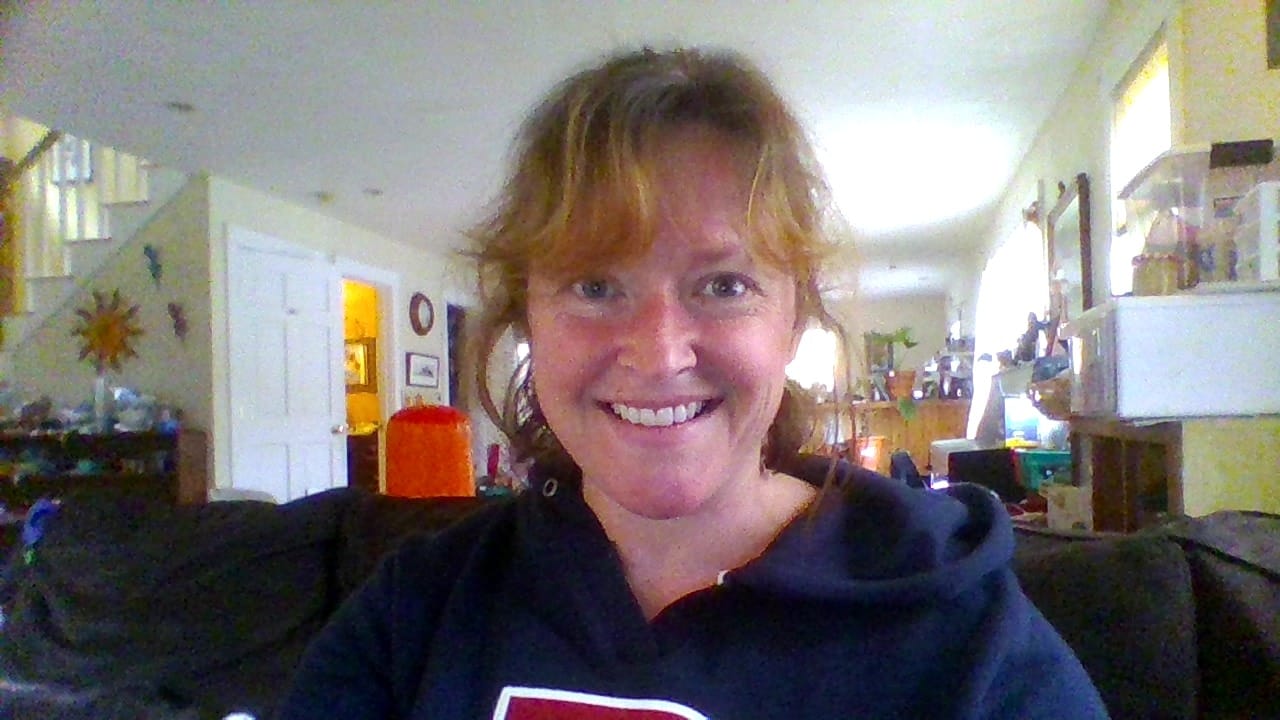 Hi. I’m Elisabeth - you call me Liz if you prefer. Elizabeth Taylor never liked the way Liz sounded like a snake hissing. I live in Vermont. I like animals sometimes better than people. I hate not having closure to things like relationships or lost animals. I ride horses for therapy. The biggest challenge of my life is being a mom and convincing myself I am doing ok at it. Peace to the mothers - You can do this. Soulful songstress Caitlin Purvis talks about her new EP 'Wasting Days' musical memories, inspirations and shares a few stories from the road. AHC: What has this journey in music, so far, been like for you, the highs and the lows, and what sort of life lessons do you feel you've picked up along the way? Caitlin: In many regards this journey is just beginning. While I have been making music since a young age and I always turn to composing songs when working through difficult times, to express joyous moments or to rant about unjust political issues and so on, my music has seldom reached further than my immediate network. This was in large part due to my tendency to be shy about what I created and due to a fear of having my voice heard. It sounds silly, but fear can be powerful. That said, I have had some very memorable moments and broken away from the fear on occasion; for instance, the day I randomly ended up opening for The Doors in Ecuador. Ultimately, music has carried me through all of the highs and lows in my life (and believe me there have been many) and I am currently in a place whereby I think if we are going to live life fully, we need to face our fears and do what brings us joy. So for me, that is what releasing my debut EP: Wasting Days was all about - facing my fear and sharing my music so that I wouldn’t have regrets. AHC: What first drew you to music and what was your early musical environment like growing up? Were there pivotal songs for you then that just floored you the moment you heard them? Caitlin: This is such a loaded question and I truly can’t answer it in its entirety briefly. There are so many artists and bands from Billie Holliday and Ottis Redding to Lauryn Hill and Sublime that have impacted me or that I’ve put on repeat until those around me beg me to stop; naming just a few seems unfair. So let’s just say: I don’t believe a day has gone by in my life where music has not been a part of it. My family embraced music; there were always instruments in my home to fiddle and play with and I was always encouraged to do so. The music I was exposed to was an eclectic mix. I’d either be dancing and singing along to music from the 50s, 60s, and 70s with my best friend at her parents’ home, as they had a jukebox and liked to throw parties, listening to world music, flamenco or the Cowboy Junkies as my mom cleaned, or to jazz and artists like Ali Farke Toure as I drove around with my dad. To this day, I identify most with artists who have powerful and soulful vocals, with songs that have great rhythm, and I continue to love a very wide array of music from electro swing and blues, to the classics, to those with a political message and so forth. They say variety is the spice of life and I definitely like to have access to a variety of music. AHC: Do you remember the first song that you ever wrote? Or that first moment when you picked up a pen and realized that you could create whole worlds just by putting it to paper? Caitlin: I can’t say I do. This is probably because I have been singing since I could speak. My mother says that even when I didn’t have great command of the English language, being a toddler and all, haha, I would be humming notes and songs as soon as I awoke at 6am. I have literally written hundreds of songs and I’m certain I’ve created thousands of melodies as they just come to me while I walk, when I’m alone in nature, if I’m cooking and so forth. Sharing this with you makes me think I should probably carry a pen and paper around more often or at least record what I come up with more often! Haha. AHC: Which musicians have you learned the most from? Or writers, artists, filmmakers etc? Caitlin: I don’t know. I don’t try and emulate anyone in particular and I haven’t focussed on learning from anyone in particular either. Of course I’ve sung along to many artists music over the years and lots of the chords I learned on the guitar were during my teen years when I listened to a lot of Sublime and Jack Johnson, but the truth is, usually when a song comes on and I like how it sounds, I often just end up making up my own lyrics to sing. This is why I am terrible at Karaoke. Haha. But in all seriousness, I wish I had a direct answer for this. There are so many talented artists in every field, and I have been able to witness such a variety of works of art through my travels around the world, that while I am not naming a particular artist, I am sure simply the exposure to many great talents has, hopefully, worn off on me a bit or rather helped to steer me whether I am aware of it or not. AHC: What do you think makes for a good song, as you're writing and composing, is there a sudden moment when you know you've found the right mix, that perfect angle of light, so to speak? Caitlin: Making a ‘good’ song, I believe, is a result of so many components coming together: lyrics that tell a story or you identify with, instruments you hear clearly and are played at the right moment, a rhythm or melody that sets a mood, and so on. You know, the list could really go on and on and I am sure there are people out there who know how to make a ‘good’ song - what the algorithms are. I also think ‘good’ songs are often just considered that because they’re popular. In regards to my music, I write from my heart. I write for me. I used to write about politics when I was studying urban poverty, now I tend to have more love songs. I do not set out to write music to please people or attract certain listeners. For me, music has always been a means of expression, not a means to an end. As everyone has their own idea of what a ‘good’ song is and we all know, you can’t please everyone, I think that if you can make music which causes people to feel something, to reflect, to dance, to go somewhere deep, and so on, you may have just created a ‘good’ song. AHC: Do you consider music to be a type of healing art, the perfect vehicle through which to translate a feeling, a state of rupture, hope lost and regained? Does the writing and creating of the song save you in the kinds of ways that it saves us, the listener? Caitlin: Absolutely. I have lived in places all around the world and although there have been hundreds of incredible moments, I have also experienced great loneliness, heartbreak and trying times. Having music as my outlet has gotten me out of many of these moments. I tended to write a song rather than write in a journal, and the best part was, I always felt healed afterwards and a sense of joy if not closure. AHC: What are your fondest musical memories? In your house? In your neighborhood or town? On-tour, on-the-road? Caitlin: There are so many. Opening for The Doors is probably one of the greatest stories I’ll live to tell, but I am equally fond of reminiscing about the days when I would run up and down the hallways in my house attempting to play the trumpet or saxophone, when my entire family would be singing to Jimmi Cliff on a drive down to Mexico, when myself and a friend would escape the crowd at high school park parties to harmonize to Alicia Keys’ “I Keep On Falling”, or when I’d casually play around bonfires and at beaches around the globe. When there is music in my life, I really am a very content person. AHC: When you set out to write an album of songs, how much does 'where the world is' in its current moment, culturally, politically, otherwise, influence the kinds of stories you set out to tell, if at all? Caitlin: Currently I am writing from a very personal place. Most songs on my EP are about love and the relationships I have experienced. That said, I am a humanitarian at heart and the political and social circumstances of the times do affect and concern me greatly. While I didn’t include any songs about the struggles of the most marginalized or the changes I would like to see in the world, which is partly a result of not wanting to come across as though I’m preaching, I did win a talent show at university when I performed a song that was inspired by Brazilian gangs and urban poverty. I know that as I continue with music I will produce more songs that touch on the political and cultural circumstances of our times and perhaps on the next album I’ll be confident enough to share them with the wider public. AHC: With the traditional ways that we listen to music rapidly changing, does it at all affect how you write and put together an album? Too often people are downloading/streaming and engaging with singular songs rather than albums as on ordered and thematic canvas, do you regret that your work may not be received in the way it was intended or created? Caitlin: As I am a new recording artist, I am really just beginning to navigate this industry. There is so much I don’t know and I am constantly learning and asking friends in the industry for advice and tips. My network has been very helpful and while I often still end up doing things ‘my way’, I am definitely taking into account what they say and grateful for any insight that comes my way. The industry seems to be changing rapidly and I think for this reason it’s important to be both flexible with one’s approach and realistic with one’s desired outcome. AHC: Do you have any words of advice for other musicians and singer-songwriters or anyone who is struggling to create something of value out there, who are just starting out and trying to find their voice and their way in this world? What are the kinds of things that you tell yourself when you begin to have doubts or are struggling with the creative process? Caitlin: I don’t know if I’m the best person to be giving advice to other musicians as I am constantly seeking theirs, however in regards to creating something of value, I truly believe you need to do what brings you joy and it’s better to be authentic than not. We are all incredibly unique and need to trust ourselves more. It sometimes seems like doubt along with fear, have been ingrained in us. I am currently in a struggle to overcome both fear and doubt. My belief is that we all have great potential, we just need to activate it, to find out where our heart lies, to sit with it and then to act on it. We won’t get anywhere by doing nothing, but we also need to be patient. Rushing through life or the creative process I do not believe will get anyone any further ahead. Oh, and one more word of advice: practice. Practice writing, practice singing, practice performing, practice creating. If you put in a solid effort, do your best, no matter what happens, at least you won’t be unhappy with yourself. AHC: Could you talk about you new EP 'Wasting Days’? Caitlin: I’d love to! It’s a compilation of five songs, each a unique genre: boot-stomping (as I like to call it), reggae, folk, pop, and soul - not in that particular order. Every song has great rhythm and is also catchy, but not necessarily in the cheesy sense. You will find that you will want to sing along and move to the rhythm. It’s strange for me to say, but I like the songs more each time I listen to them. I hope others feel the same! Haha. And my voice, well, it’s got some character. Because each song is a unique genre, it’s my voice that bridges them. I was really fortunate to have Max Zipursky as my producer and the entire team at The Space Studios really came together to help me create something special. I think most people will find at least one track on the EP that they dig. At least that is what I am hoping. For more visit caitlinpurvis.bandcamp.com/releases caitlin-purvis.squarespace.com/ 12/20/2016 Four Poems by Daginne AignendMood tuners I'm so tensed The world is a dark cloud Can't see any brightness over here A party, I'm at a party Be cheerful, that's the word Laugh and dance the night away I can't, I hate the phony atmosphere Mood tuners, I will get me some Get me on the right frequency Shivering, cold sweat Want to cut deep, but again I won't Help me, help me, please! Raw Wash! I need to scrub away the besmirching stains My skin is all wrinkled in the shower by the hot steamy water No, not clean yet Have to purify me again Exhausted... This body is not my own Can I transfer myself somehow into my true self before you took it Raw is all I can feel Raw Insomnia God, I'm so tired Think exhaustion is the word My body feels as if I'm wired Got me overwhelmed by hurt Oh please let me sleep Desperately, oh it's enough An infinite abyss, falling deep I just can't switch my mind off Losing my powers, weakness I'm cursed, forever sleepless Penance Needles anguish my skin A torture of the nerve Guilty as sin I got what I deserve Tormenting blazing flames Burns me deep inside Controlled by a poignant shame Shame, because I lied In my soul an everlasting stain I could never imagine ... The path of love would cause so much pain 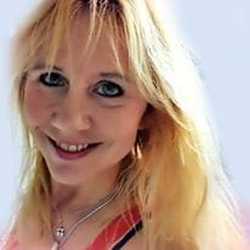 Bio: Daginne Aignend is a pseudonym for the Dutch poetess Inge Wesdijk. She likes hard rock music, photography and fantasy books. She is a vegetarian and spends a lot of time with her animals. Daginne started to write English poetry four years ago and posted some of her poems on her Facebook page and on her website. |
AuthorWrite something about yourself. No need to be fancy, just an overview. Archives
April 2024
Categories |
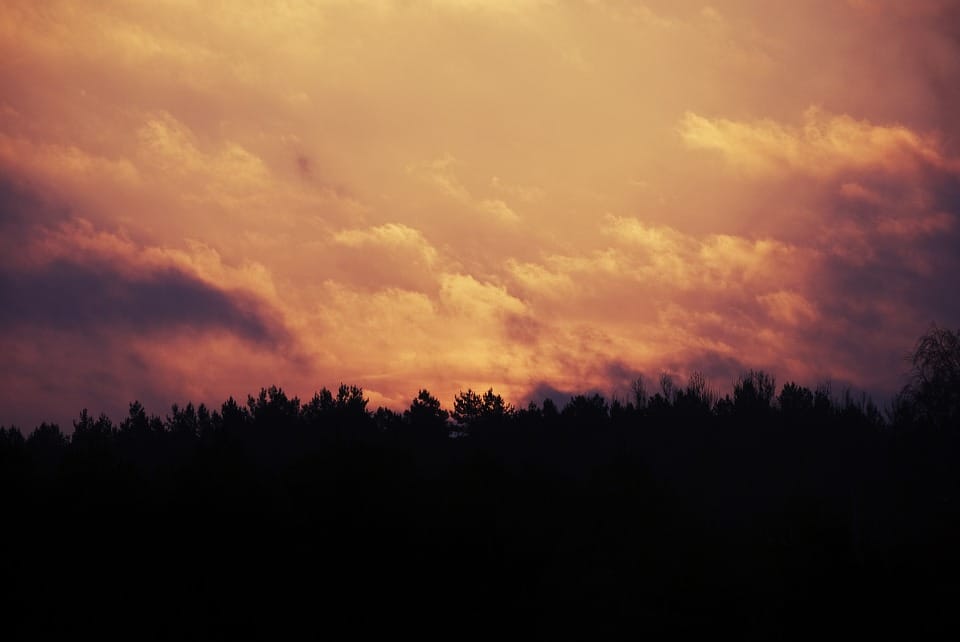
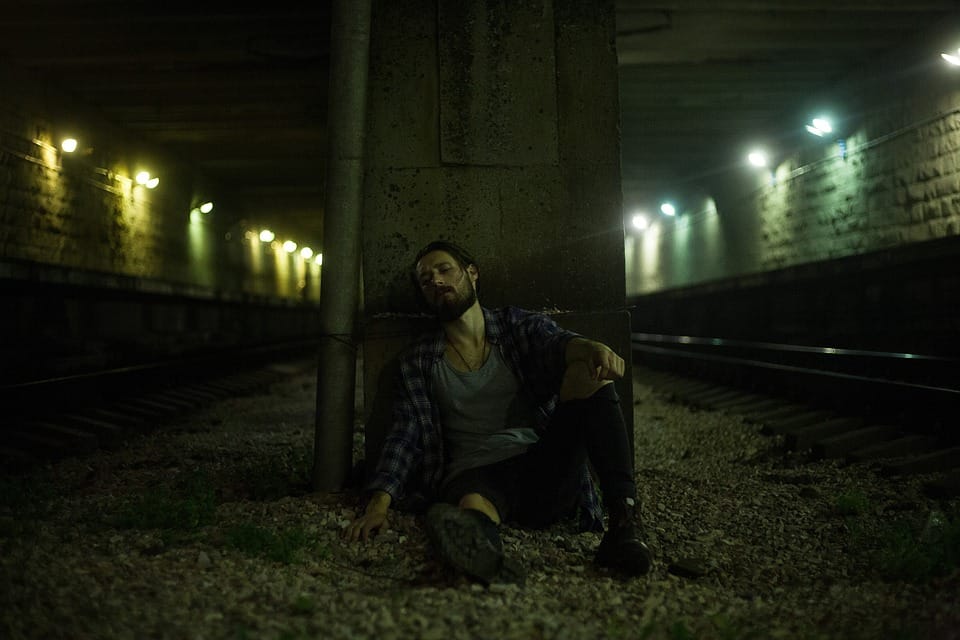
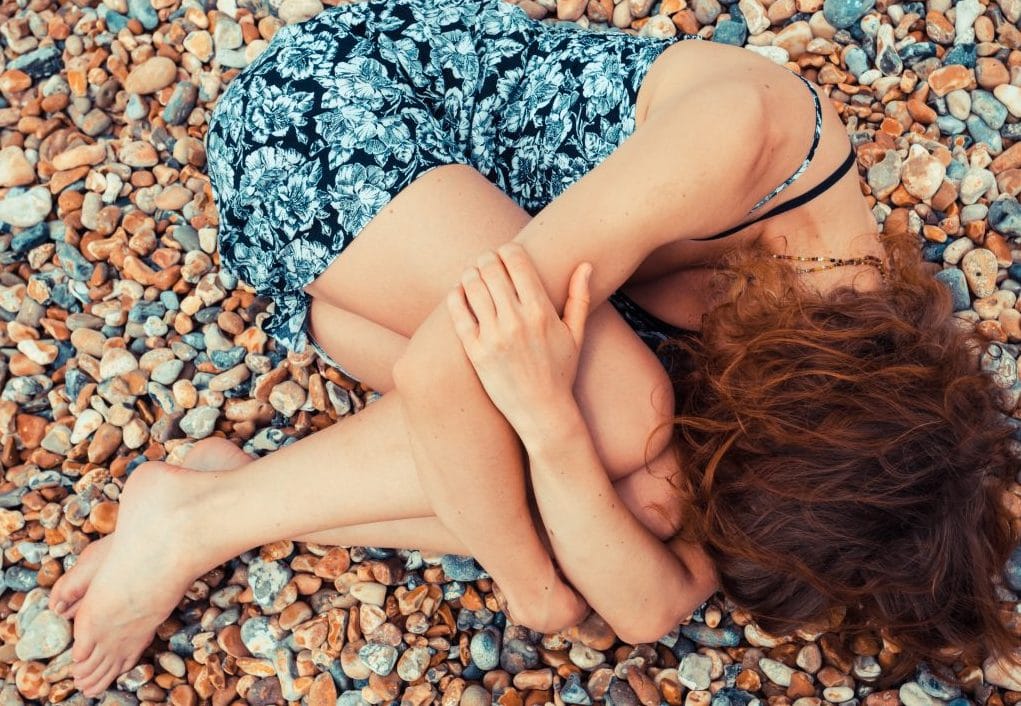
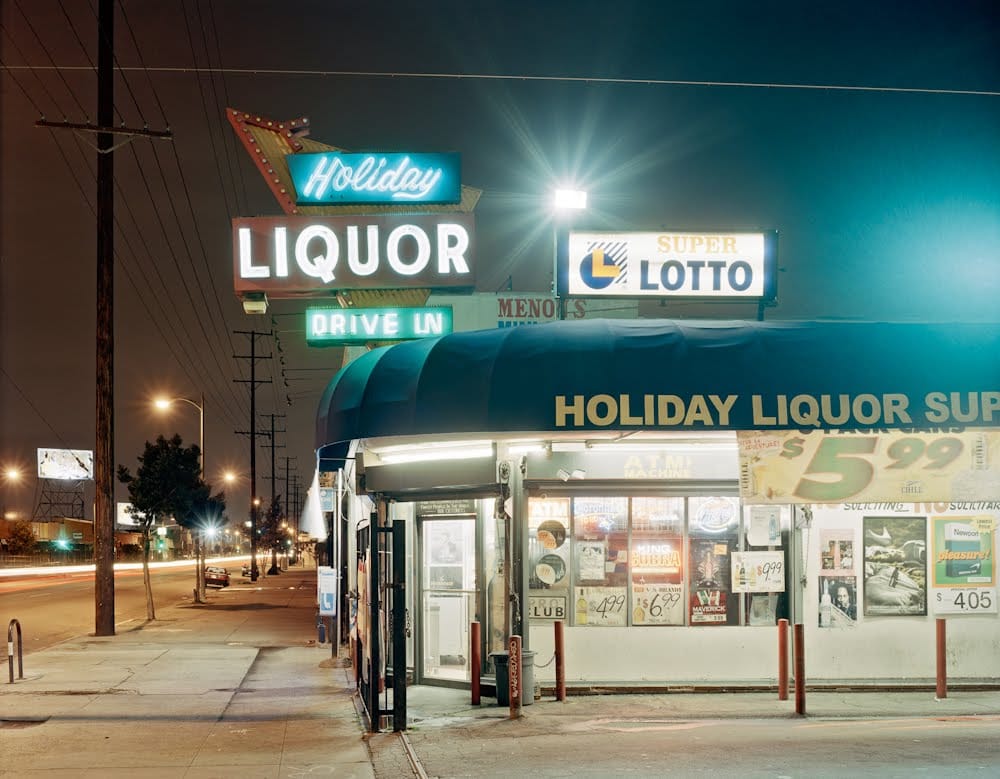
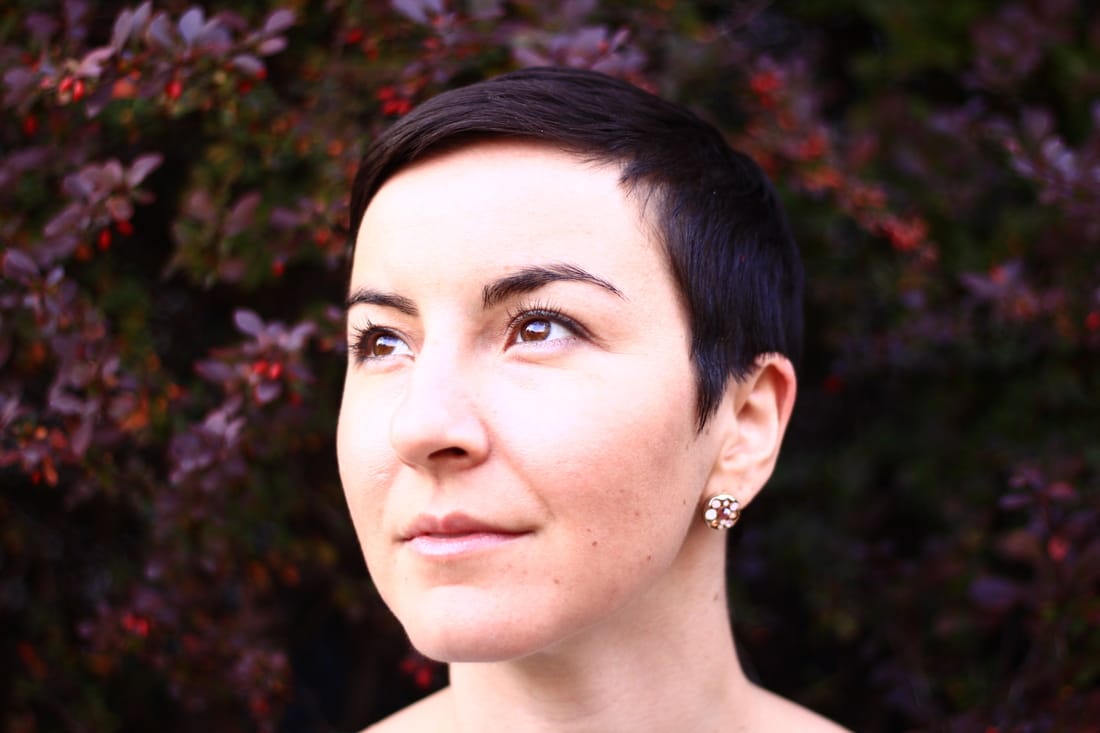
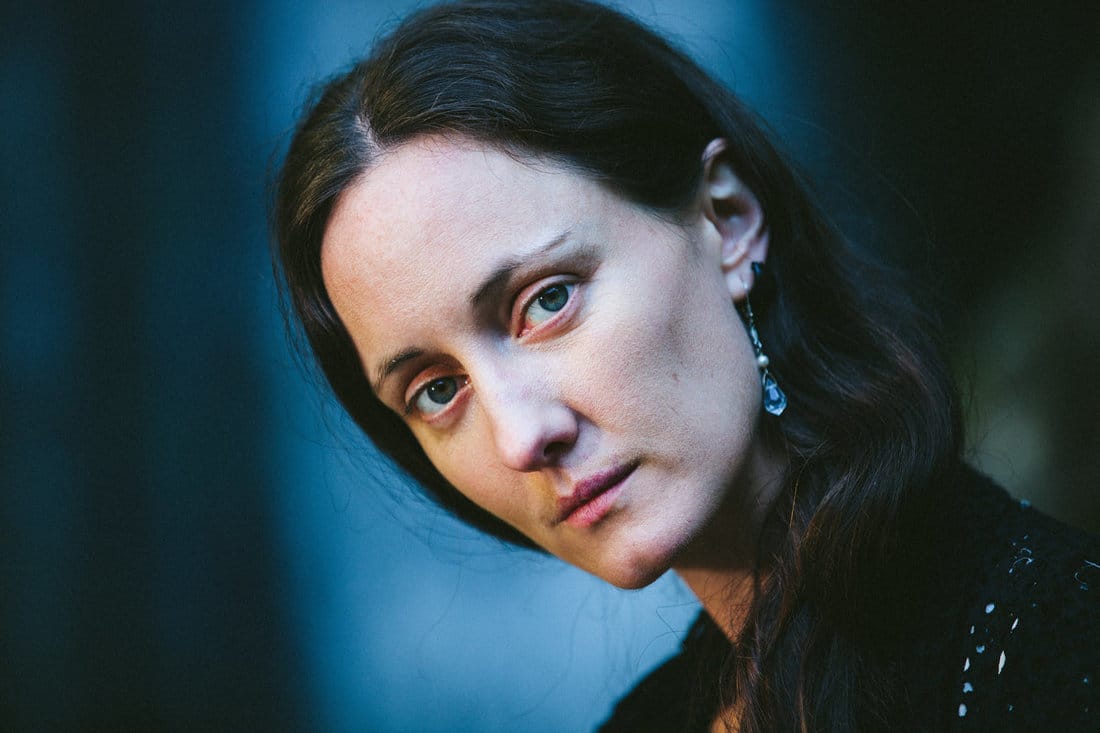
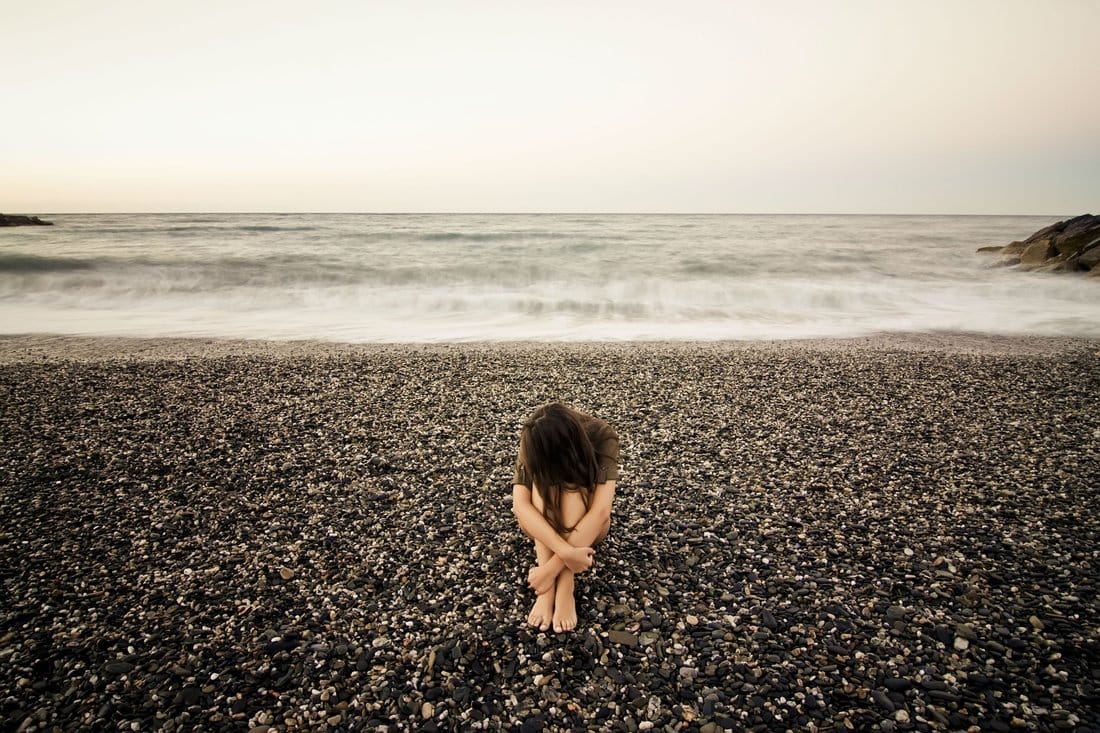
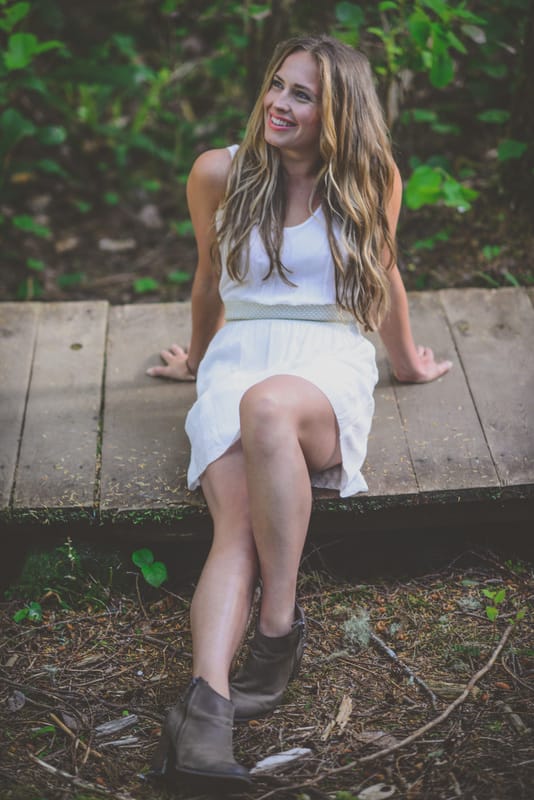
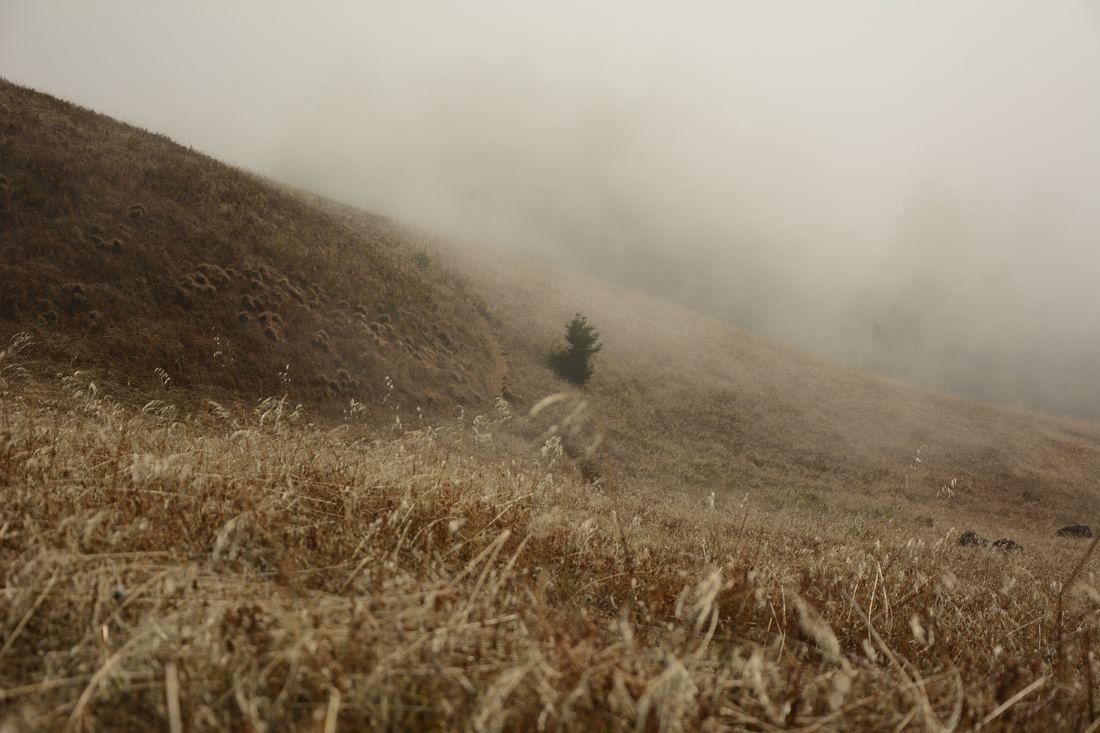
 RSS Feed
RSS Feed
